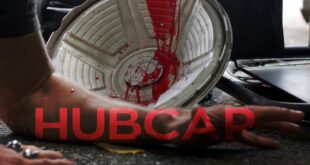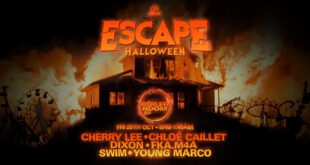As a child, I had no idea that movies had creators. I grasped the idea of books and stories being the work of an author, and I could imagine them typing away at a typewriter the way my mom or dad would sit and type for their day jobs, or the way I would write homework on the family desktop. Movies, though, magical and wondrous as they are, seemed to drop from the sky like comets or alien vessels, smoking artifacts of our collective human dream. Solving the mystery of these immaculate conceptions are what drew me to writing about film in the first place.
In his documentary, Clapboard Jungle, Justin McConnell (Galaxy Of Horrors 2017) demystifies this process with a startling bluntness. Films are conjured from clay; they’re laboriously built by artists, creatives, and craftspeople of all kinds. Further still, once these watchable toils are made, they have to be sold. From its opening interview with Guillermo Del Toro, Clapboard Jungle states the process plainly and clearly: movies are not dreams. They’re a business that can be as cutthroat, chaotic, and capricious as anything on Wall Street.
The film follows McConnell’s journey through a rough patch of creative dullness and his life as an independent filmmaker trying to make something—anything—happen in the industry. Filmed over five grueling years, Clapboard Jungle features McConnell at his most hopeful and most defeated, his entire spectrum of emotions, until he becomes more than a frustrated man with a camera. He becomes an avatar for creativity and all its burdens. Everyone who has ever wanted to just make something and found they couldn’t due to circumstances beyond their control can find themselves in this story.
The universality of this journey is reinforced by the myriad of interviews with other film professionals from Cinematographer Dean Cundey (Jurassic Park 1993) to Culture Shock writer/director (and Swiffer commercial star) Gigi Saul Guerrero about their frustrations, wins, and losses in the movie biz. We quickly realize that, while McConnell’s struggles are relatable, there’s something unique about struggling in the movie business that makes it different from novels, music, painting and sculpture.
Filmmaking isn’t something you can do on your own. This sounds obvious, but, in the context of every other art form, it’s something to consider. McConnell can’t shut himself away, play the piano, record it, and suddenly have a song. A movie requires weeks of planning and a legion of actors, visual FX artists, cinematographers, and scores of technical and administrative personnel, even at an indie level. The filmmaker has to share his vision—or visions, as he follows multiple projects in various stages of development—with other people in order for it to exist. The weight of his dreams, like any filmmaker’s, cannot be carried alone.
As someone who knows merely a few clicks are all that stand between this review’s existence and oblivion, my sympathies swell for even the lowest of low budget productions.

What’s miraculous about McConnell’s documentary is that, while never shying away from the desperation, brutality, and hopelessness of getting the right company to offer the right money to get the right version of the right movie made and bring it to theaters, Clapboard Jungle never truly loses hope. Every jaded filmmaker and industry professional they talk to still harbors a tenderness for the ever twisting roller coaster they’ve strapped themselves in to. Even in some of McConnell’s more harried selfie cam testimonials, he still can’t abandon the belief that his stories can and will be told.
That hope is infectious, and the feeling to create and invest in yourself continues long after the credits roll. Anyone wanting better insight into the Free Solo, bare knuckle climb of independent movie making and a Pulp Fiction-esque dose of that hope will enjoy Clapboard Jungle.
 PopHorror Let's Get Scared
PopHorror Let's Get Scared





